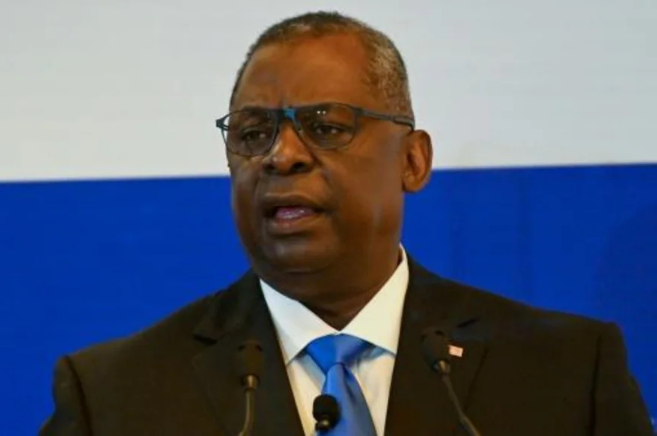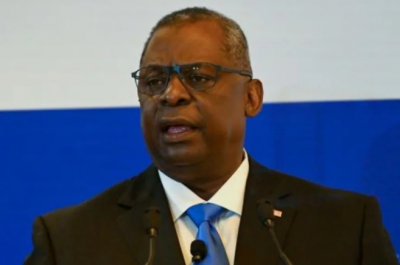U.S. Secretary of Defense Lloyd Austin announced on Tuesday that Beijing's extensive claims in the South China Sea "lack a basis in international law," in a strong criticism of China's increasing assertions of rights over disputed waters. This sharp rebuke from Austin came at the beginning of his first trip to Southeast Asia as U.S. Secretary of Defense, as he seeks to rally allies in the region against China.
The Biden administration aims to rebuild relations with Asian countries and forge alliances against China, following a tumultuous period under Donald Trump. In a speech delivered in Singapore, Austin criticized China's activities in the disputed area where several Southeast Asian nations assert sovereignty over maritime spaces that China claims as its own.
Speaking at the International Institute for Strategic Studies, which hosted the event, he stated, "Beijing's claims over the vast majority of the South China Sea are without basis in international law." He added, "This rising influence encroaches on the sovereignty of nations in the region," emphasizing that the United States will support nations in defending their rights.
China claims sovereignty over most of the resource-rich sea through which trillions of dollars in maritime trade pass annually, amidst similar claims from Brunei, Malaysia, the Philippines, Taiwan, and Vietnam. Beijing has been accused of deploying several military assets, including anti-ship missiles and surface-to-air missiles, in the area. It has ignored a 2016 international court ruling that deemed its claims over most of these waters as baseless. Tensions have escalated in recent months between Beijing and other countries with similar claims.
Manila expressed outrage after hundreds of Chinese vessels were spotted within the Philippines' exclusive economic zone, while Malaysia sent fighter jets to intercept a Chinese military aircraft that appeared off its coast. Austin stressed on Tuesday that the United States "will not hesitate when our interests are threatened," but he affirmed that Washington "does not seek confrontation" with China.
He stated, "I am committed to seeking a constructive and stable relationship with China, which includes stronger communications during crises with the Chinese military." U.S.-Iranian relations are tense over various issues ranging from cybersecurity and technological supremacy to human rights in Hong Kong and Xinjiang.
Biden has largely maintained Trump’s tough stance on China, labeling the Asian power as the foremost threat to the United States, but he has toned down the rhetoric to emphasize working with allies and seeking to improve domestic competitiveness. After Singapore, Austin will visit Vietnam and the Philippines, aiming to reiterate that the United States is a "stabilizing force" in Southeast Asia, according to a senior defense official.
The thriving Southeast Asia region, home to over 650 million people, has become a major battleground for influence between the U.S. and China. As the region faces the worst outbreak of COVID-19, Washington and Beijing are competing to donate vaccines. Austin highlighted U.S. donations, stating that Washington "is accelerating the delivery of life-saving vaccines to the region" and pointed to several Southeast Asian countries that have received doses. He added, "They are free of conditions, ambiguities, and limitations."
China is also donating its domestically produced vaccines to the most affected countries in Southeast Asia, with analysts suggesting that Beijing hopes to use "vaccine diplomacy" to enhance its standing. Austin's visit is the latest in a series of high-profile American trips to Asia. Secretary of State Antony Blinken arrives in India on Tuesday to discuss support for Afghanistan, as concerns grow in New Delhi regarding the gains made by the Taliban alongside the withdrawal of U.S.-led foreign forces. Earlier this week, Assistant Secretary of State Wendy Sherman visited China for talks with senior officials as Washington seeks common ground with the Asian giant.




